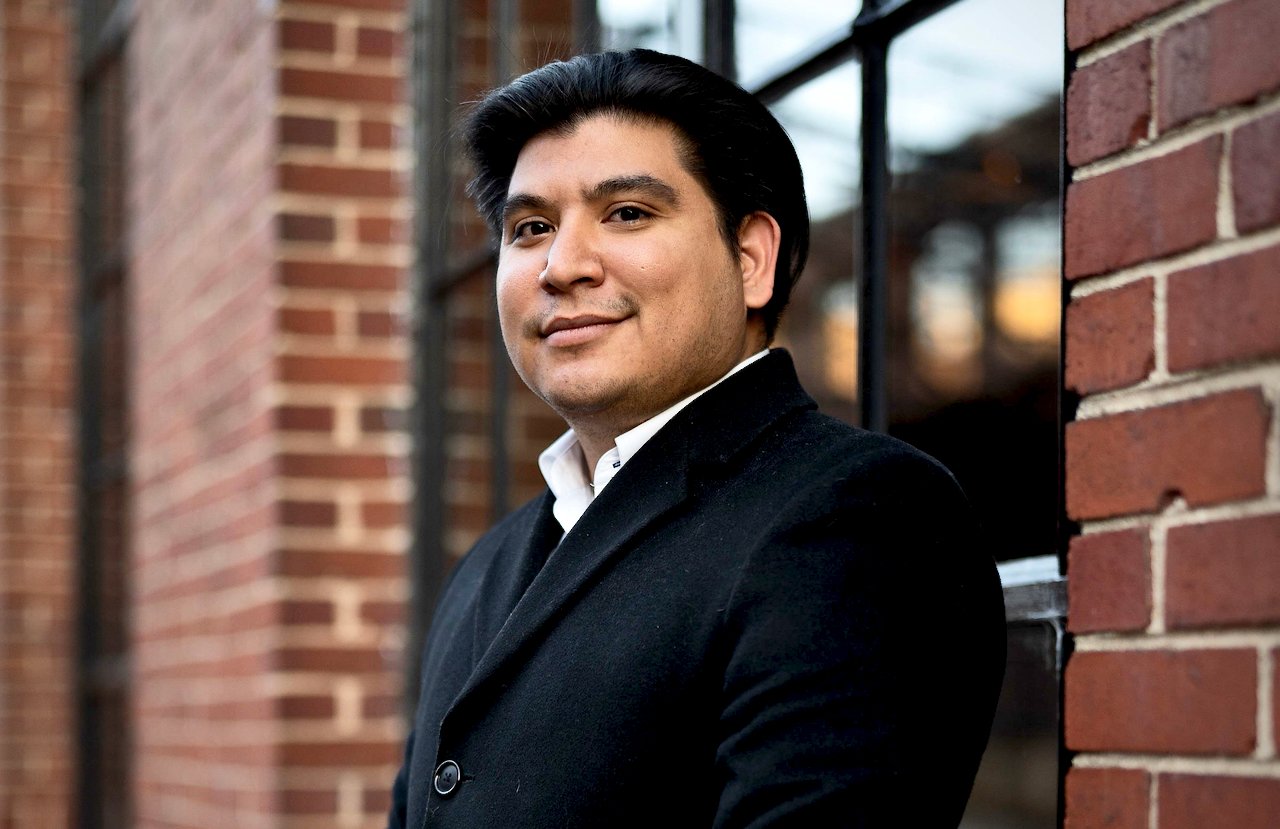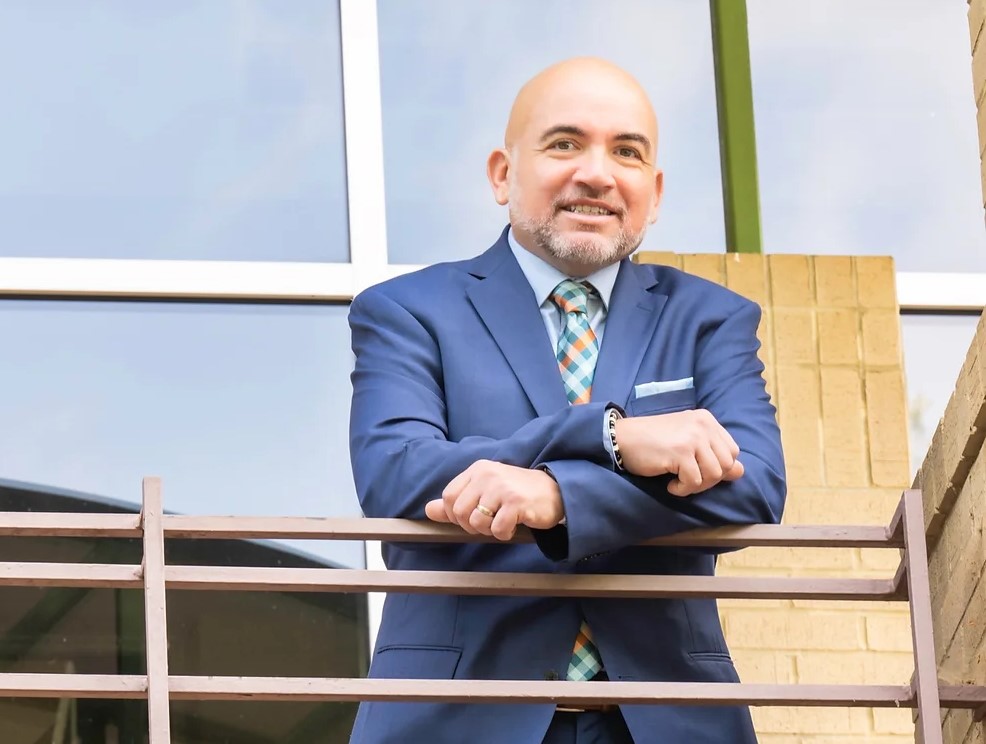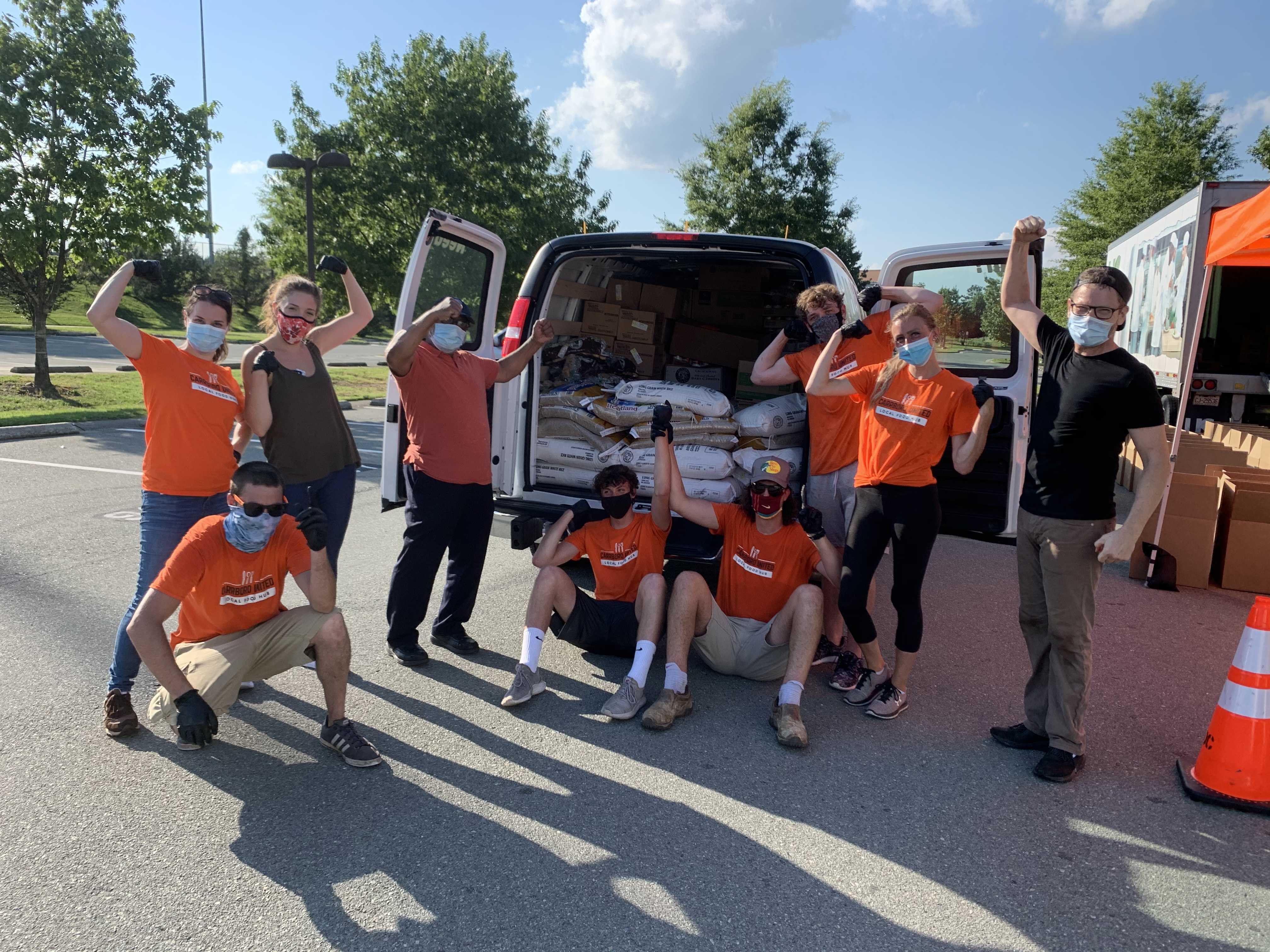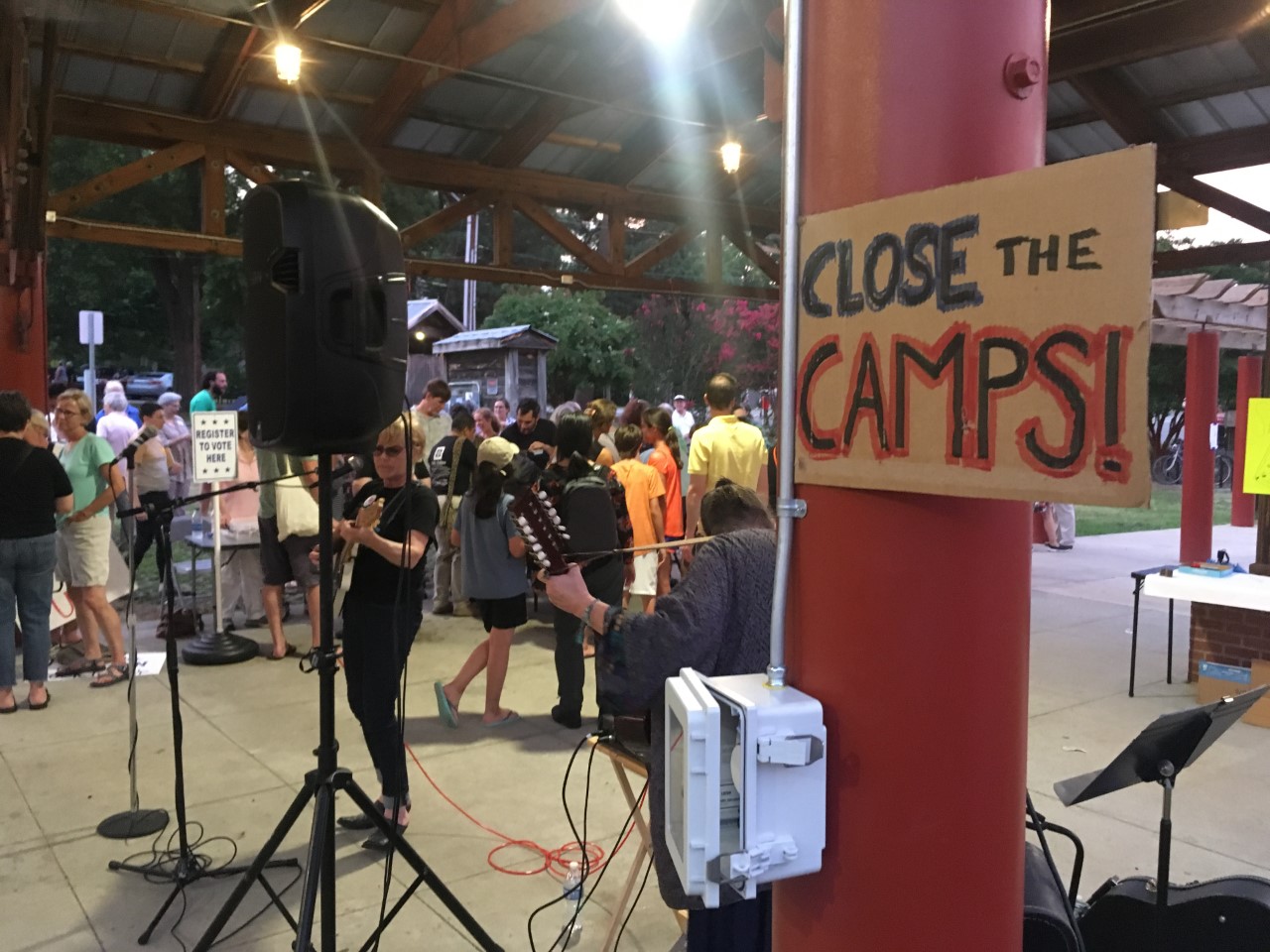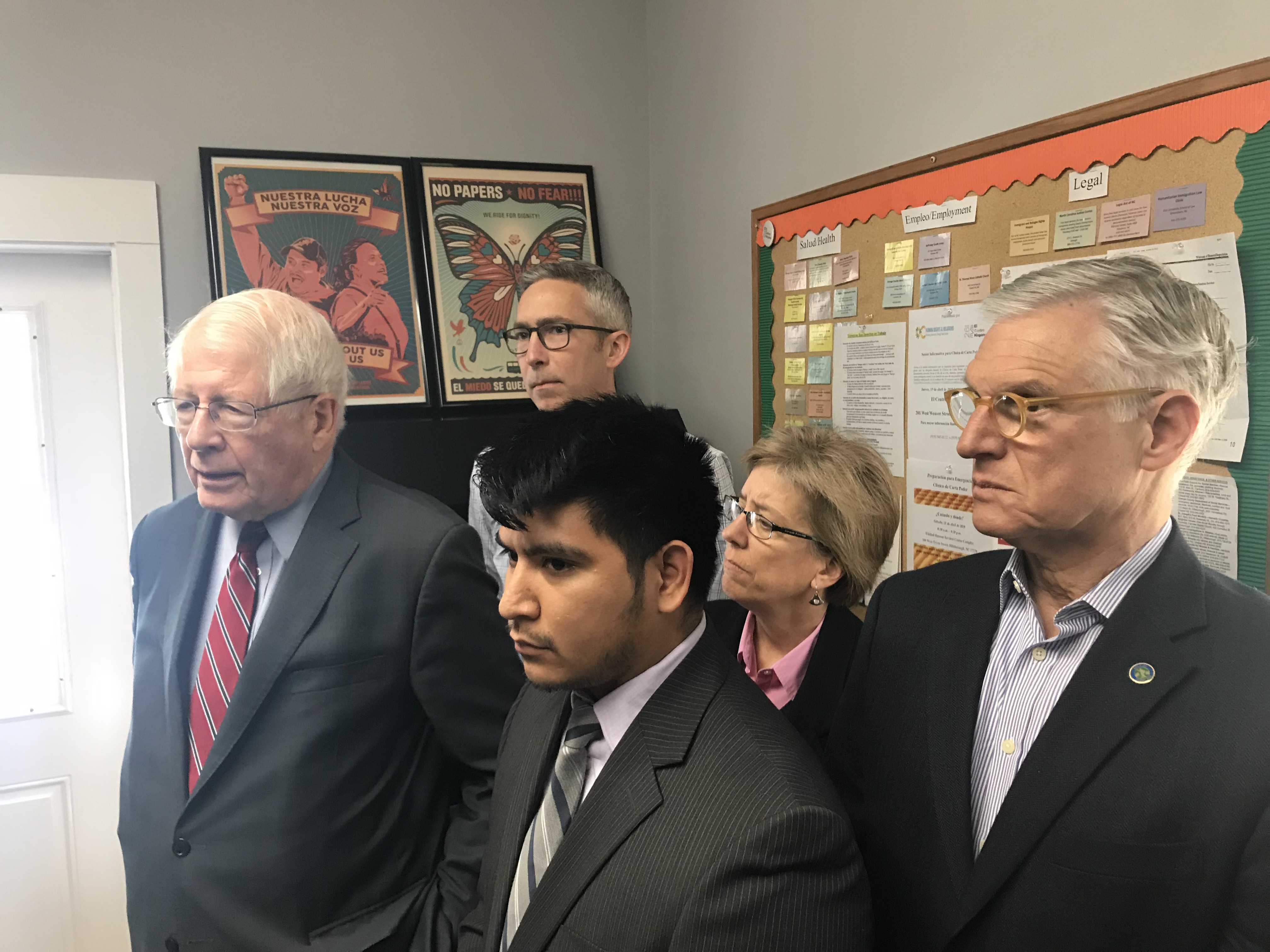Protesters packed into the plaza in front of the post office on Franklin Street recently in support of the Families Belong Together National Day of Action. As protests across the country ramped up, hundreds in Chapel Hill banded together to express angst and anger, frustration and fear, in the face of current immigration policy.
“We need to change the immigration laws,” said protester Eric Juengst, “And their enforcement to back off of this xenophobic attitude for people who want to come into the country.”
Making change in our community for the better doesn’t end with protesting, however.
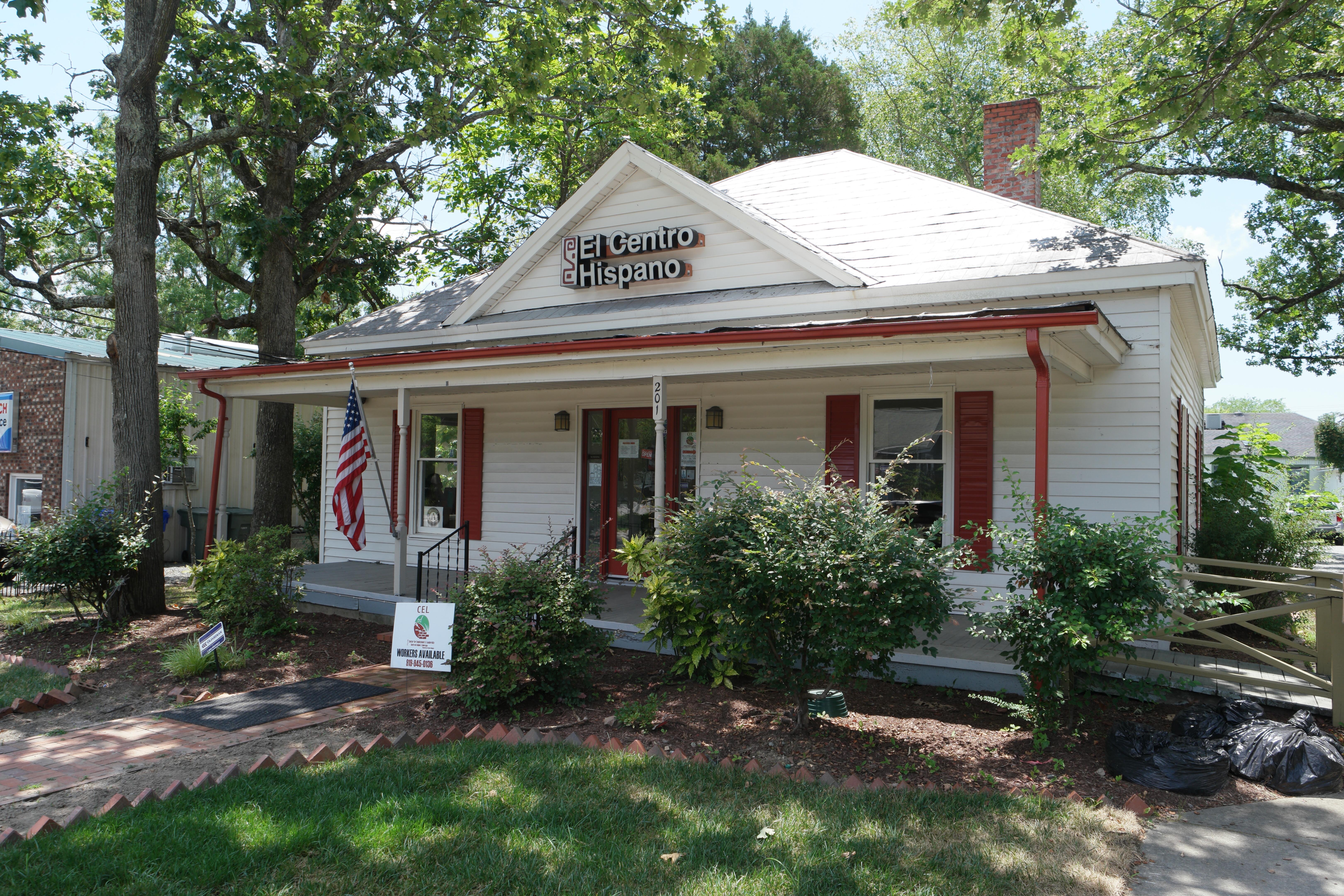
The Carrboro office of El Centro Hispano
You can find Ana Johnson working at the Carrboro office of El Centro Hispano, a small nonprofit based in Durham. Johnson is from Argentina, and new to El Centro, but has already begun to take on important work. The office is an unassuming white house with an American flag displayed prominently on its front porch.
“One week ago,” said Johnson, just days after the Families Belong Together National Day of Action, “We went to the legislative house and knocked on doors, and we talked to senators one-on-one.”
Johnson said she and her coworkers were seeking support on issues such as in-state tuition for DACA students and driver’s license for immigrants. According to Johnson, El Centro Hispano works to provide direct support and guidance for education, healthcare and employment. Her specific focus as El Centro is local day laborer, but there are no shortage of issues affecting the Hispanic community.
“Imagine at this point in your life that you have your job, and you have your life and somebody comes and takes you away,” said Johnson. “And everything that you thought was your life, your own world, is just destroyed … Everything’s shattered.”
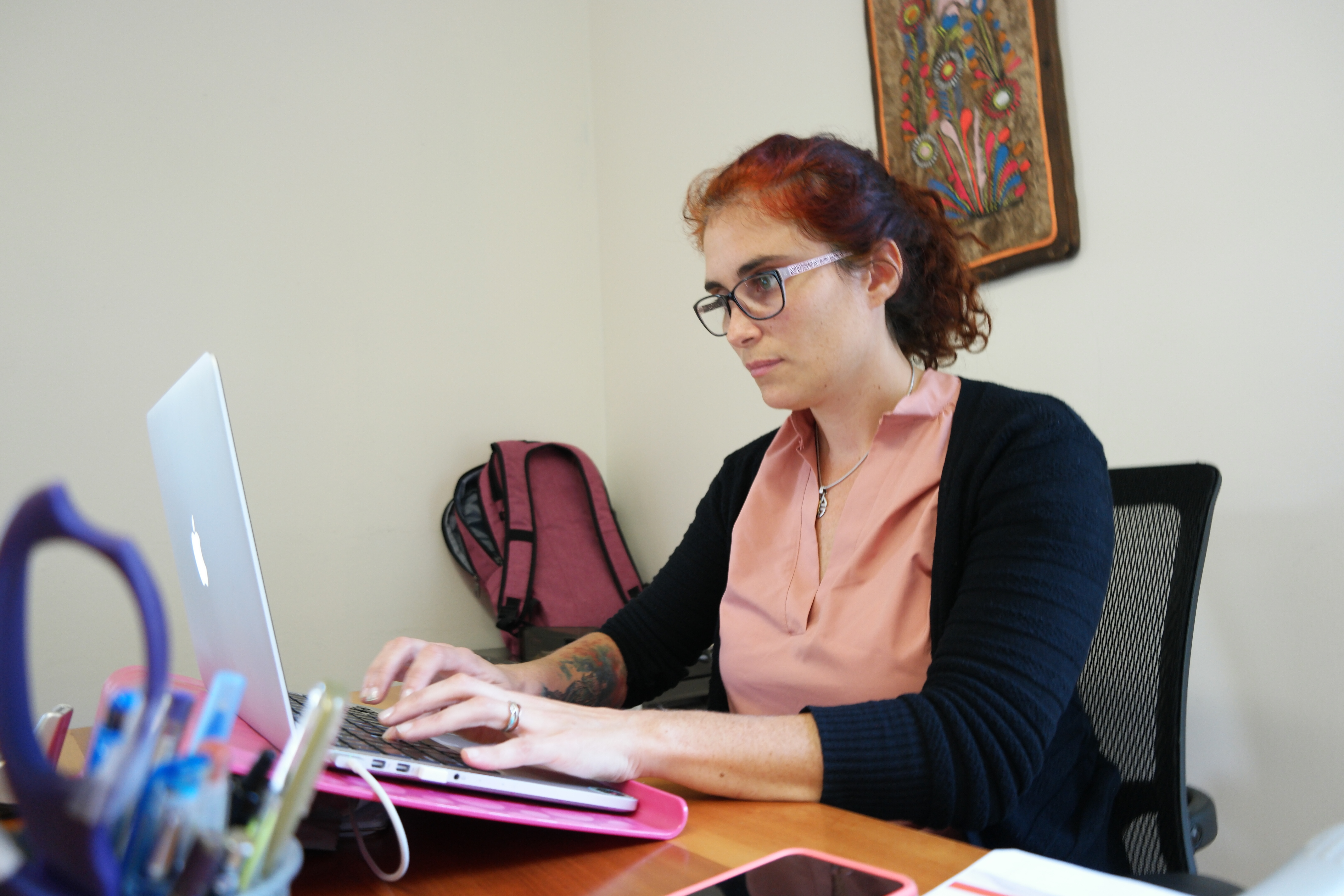
Ana Johnson
Johnson said that implementation of the current administration’s “zero tolerance” policy – which is currently under debate in terms of its legal and ethical status – has “unequivocally” raised fears of deportation. Even though President Donald Trump ultimately overturned his own initiative with an executive order, there was been an irrevocable shift since the first family was separated at the border.
“The mood right now is fear,” said Johnson, as she expressed the far-reaching impact of current policy and attitudes. “[Losing a family member is] like being stripped of your whole structure, your whole world.”
Johnson shared the story of a local day laborer who was visibly shaken after seeing ICE trucks in his neighborhood. He came to El Centro fearing that he – and his wife and children – would lose the life they have built here.
“The thing that bothers me most about the children and families is that they’re being re-traumatized,” said Barbara Hotelling, another Franklin Street protester. “They had to leave trauma and had to face trauma again when entering the United States. For the parents especially, it impacts their mental health, with more stress. For these children, I am concerned because they already have neurological changes in their brains for their age, and the separation and change they have to deal with is really upsetting.”
Despite the increased anxieties, after attending the Families Belong Together protests Johnson felt confident. Confident that her voice, and the voice of the Hispanic community, was being heard. With how loud the literal and figurative volume during Chapel Hill protests was, that certainly seems to be the case.
“There are currently unfair laws that are governing what is going on at the Mexican border,” says Angelique Lawyer, one of the protesters at the event. “… We care about all people from any origin, religion, background or country.”
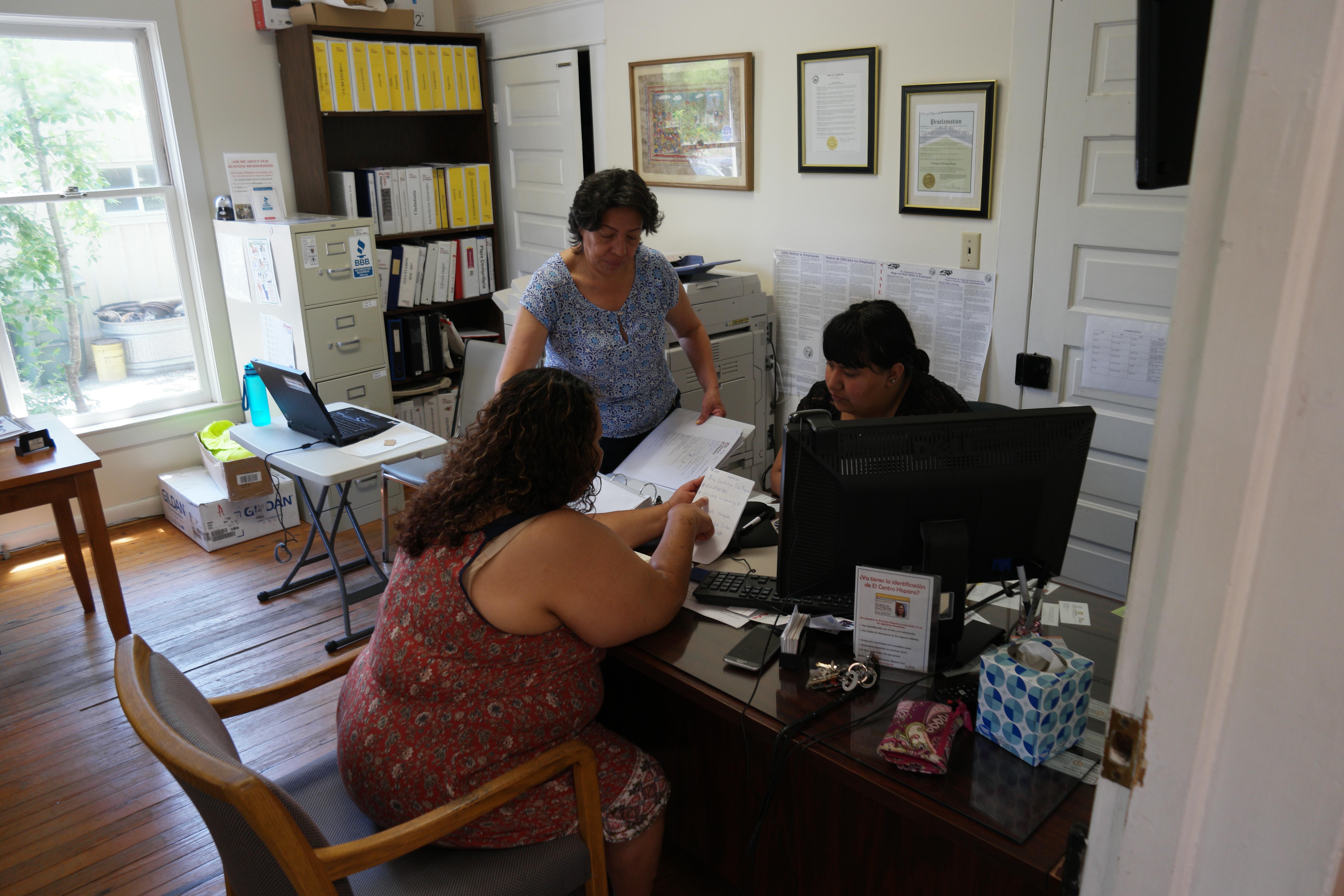
Inside the office of El Centro Hispano
The issue of immigration isn’t one with an easy solution, or a single one. Ana Johnson works to help those who need it both inside and outside El Centro every day, and she firmly believes in the unalienable rights set forth in the Declaration of Independence: life, liberty and the pursuit of happiness.
“I think that a country, any country, should be a place of inclusion,” said Johnson. “If somebody wants to come here and make a life and work and provide to the economy and so on, [they] shouldn’t be stopped. Immigrants come here to work but also to make a life.”
Johnson and the staff at El Centro, along with demonstrators across the country, give immigration issues a human face. Their presence in legislation make the issue present and forces lawmakers to confront it – even if only for a moment. Any action, no matter how small, is better than apathy.
“There’s a lot of things people can do,” said Johnson. “From volunteering a few hours per week in centers like this … to going outside and protesting, to writing letters. It seems like it’s not a big thing, but people can make a change.”
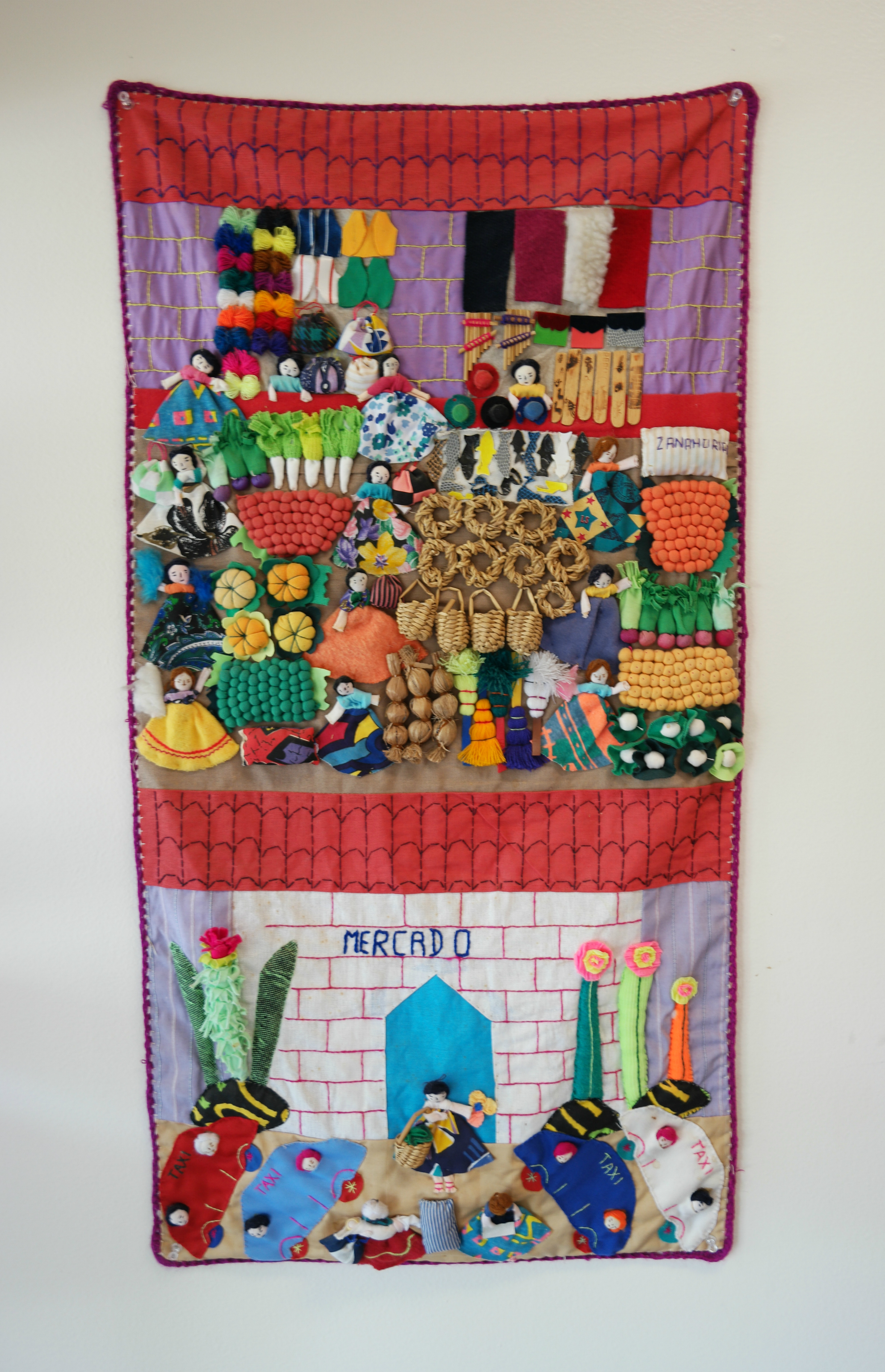
A wall hanging inside El Centro Hispano
Story and photos by Justin Meckes, additional reporting by Isaac Bryant


